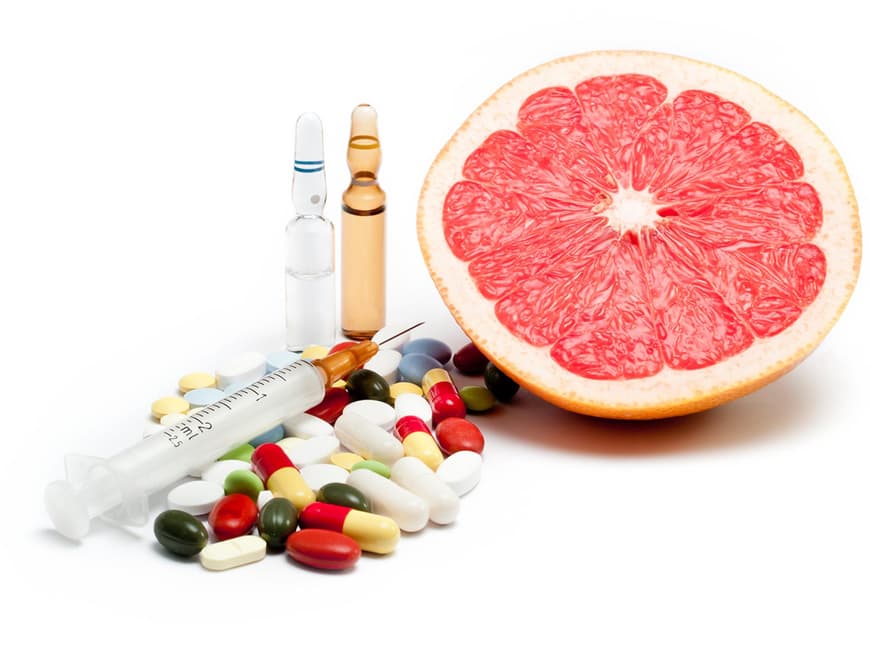
How grapefruit works with medication
The ingredients in the fruit either increase the effectiveness of the medication or weaken it so that only half of it reaches the bloodstream. This is because they are broken down in the small intestine and liver by the same enzymes that play a role in the breakdown of more than 50 percent of all medicines.
Naringenin is the name of the substance that makes grapefruit bitter. However, it also inhibits metabolic processes in the body. In the one case, the active ingredients are not broken down and can concentrate in the blood in dangerous quantities, in the other they do not pass from the intestinal mucosa into the blood.
Doctors recommend not drinking grapefruit juice if you are taking medication. Orange juice is a good alternative as a source of vitamin C. Numerous studies have already shown that it is well tolerated with medication.
What you should always bear in mind with medication
"Before eating" means: The medicine must be taken 30 minutes to an hour before the next meal. The medicine works faster on an empty stomach.
"With a meal " means: The medicine is taken between two bites or after eating. The chyme protects the sensitive stomach lining from any damage caused by the medicine.
"After eating" means: The interval between the last meal should be at least two hours. This is because there are some foods that cause a medicine to work less effectively.
